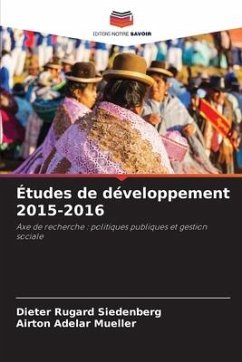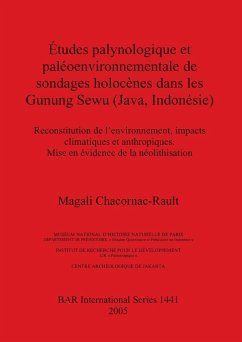
Études Sur L'Haïtien
Folklore and Tradition
Versandkostenfrei!
Versandfertig in 1-2 Wochen
19,99 €
inkl. MwSt.

PAYBACK Punkte
10 °P sammeln!
For a long time many people, especially students and colleges and universities were waiting for a book that can teach them everything about Haitians, Folklore, and oral tradition. Finally, it is here. I plan to publish this book in English, Spanish and many other languages, in order to let people better understand "Haitians" the first free black nation in the new world and the second after the United States of America. "Folklore is the highest expression of the Heart of a people. Folklore can give a solution to some of the most obscure problems of history, and bring clarity to many speculation...
For a long time many people, especially students and colleges and universities were waiting for a book that can teach them everything about Haitians, Folklore, and oral tradition. Finally, it is here. I plan to publish this book in English, Spanish and many other languages, in order to let people better understand "Haitians" the first free black nation in the new world and the second after the United States of America. "Folklore is the highest expression of the Heart of a people. Folklore can give a solution to some of the most obscure problems of history, and bring clarity to many speculations". The systematic exploitation of our folk topics, the in-depth mixing of our cultural richness to the facet will contribute to preserve the originality of a Haitian. The swing-low, thus relates to each and everyone. This book awaits the collaboration of almost eight million Haitians, of the interior and the Diasporas: the Oral tradition of a country like Haiti, that has a traditional culture, cannot be contained in the brain of about sixty individuals. It is time to rally. The title of this book denotes it at the bottom of the antimony or a certain character of complementary between the expressions of Folklore and Oral tradition. The word Folklore appeared for the first time in August 22, 1846 in Athenoeum, under the signature of the English archeologist William John Thorns. Admittedly, the field of folklore was restricted at the beginning, widened with time until it embraced all human life. As much to say that it meets that of the oral tradition. Saint- Yves says "that it constitutes one of the most significant branches of Cultural Sociology". In April 1927, Saint-Yves gave a conference to the annual General Assembly of the Belgian Company of Folklore in Brussels: "Apology for the Folklore or the Science of the Popular Tradition" or the two expressions are assimilated. Folklore is considered by him like the science of the popular tradition; but, according to us "Haitians", popular tradition does not imply simply orality, it also implies the material aspect of what one can call traditional Ethnography and, not only tales, legends, riddles, proverbs, and songs.














